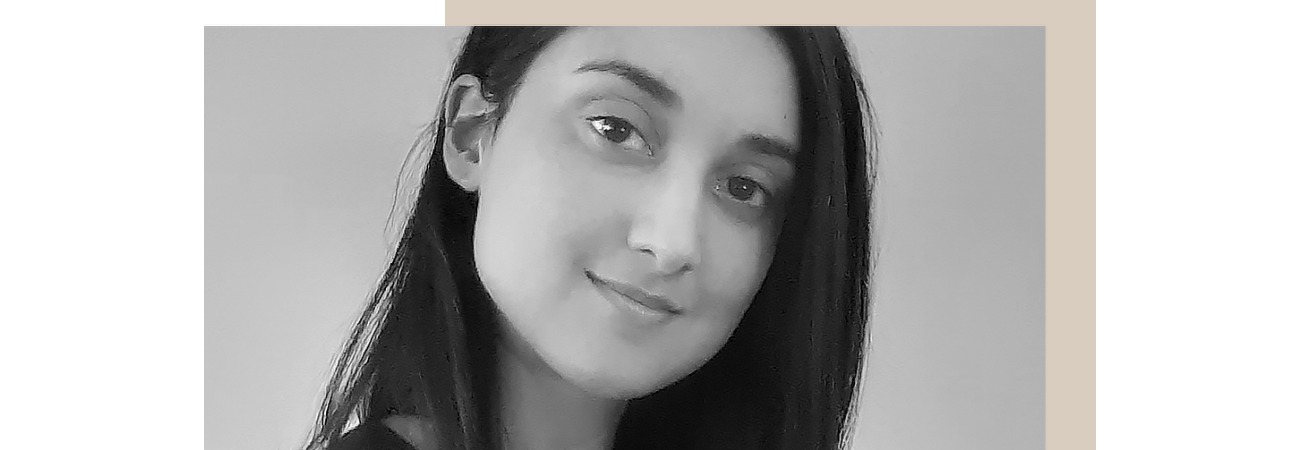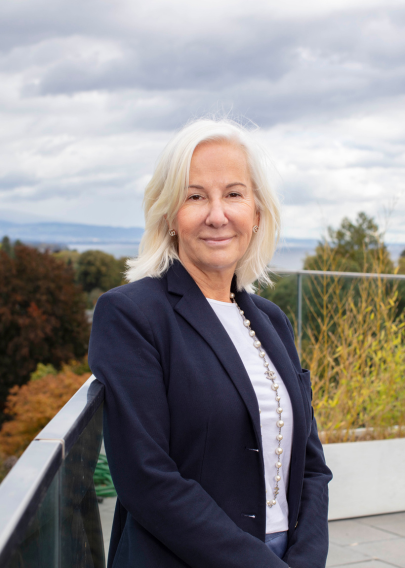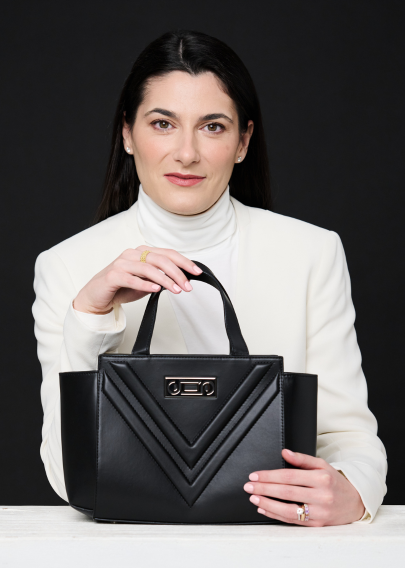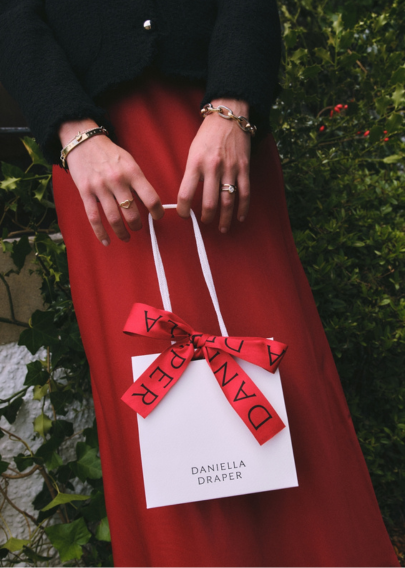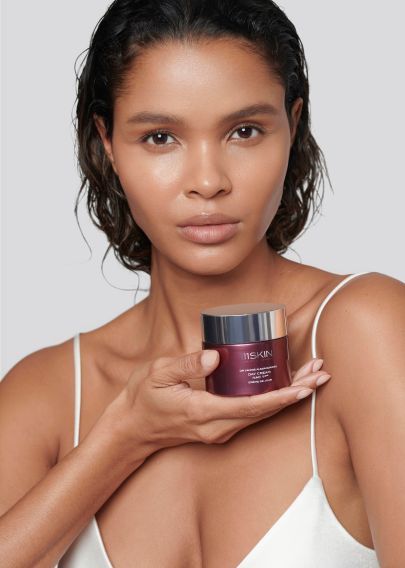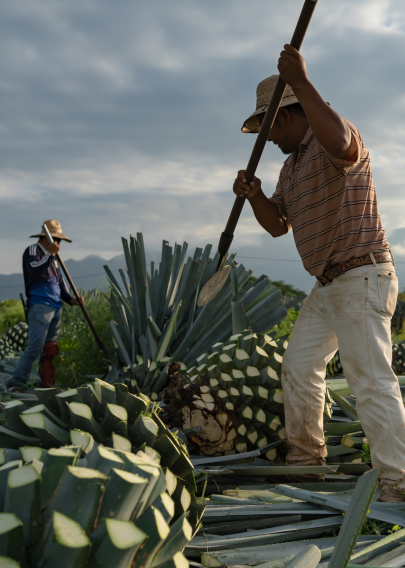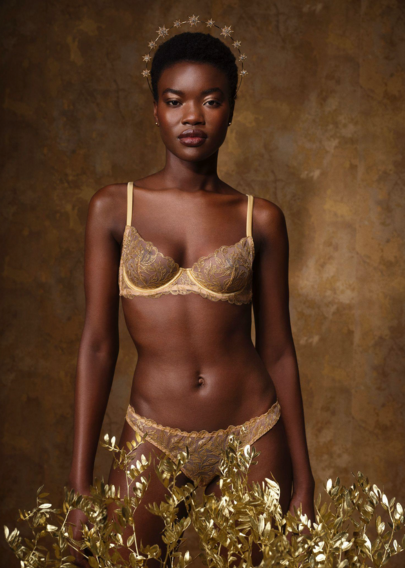Each month Positive Luxury share positive brand stories and actions from our community to inspire people working in sustainability and offer professionals – often at the start of their career journey – advice on the many routes there are to making a difference. This month the spotlight is on The Lux Collective’s Chief Sustainability Officer, Evita Fakun.
. . .
What qualifications do you have? Did they play a role in getting you where you are today?
I have a BA Hons in Fine Arts, it helped me make peace with my quirky side plus four years of art school does add a solid foundation to any project requiring an intelligent yet unconventional perspective. I specialise in Applied arts so I’m all about art imitating life imitating art imitating life. Since I wanted to make the world a better place (not at all cliché, right?), I decided to start an organisation in Mauritius to promote contemporary art, open conversations which would hopefully lead to a more coherent social development. So, I forced myself to study Business Management. Lol. I felt it was the language that an obliviously patriarchal society would understand. I was not completely right, as I realised most people enjoy my quirky side. Today I have a Masters in Competitive Intelligence, it sure does nourish my desire to constantly, positively influence the world around me but it also gives me the necessary confidence to navigate this world. Of course, these aren’t the only things that led me to where I am, the people I met, the places I saw, the scents, the words and the movies that make me travel to another place or another time, all nourished my journey to where I am today.
Have you always worked in sustainability? If not, what did you do before?
I did small jobs, working in a café as a student in Melbourne, being an assistant to a CEO having only studied arts, or teaching art to high school students, I learned a lot from each of these roles. I almost see them as some kind of character I was playing, à la Cindy Shermann or Sophie Calle, exploring human interactions. You become very open and accepting of the myriad of personalities out there and appreciate the uniqueness of each.
How did you end up in your current role?
Back in 2016, you would not come across sustainability related positions a lot, at least not in the corporate world. I could not miss the opportunity at LUX, I could easily understand the complexity of the job requirements, delivering on them was quite a challenge but I was convinced there was nothing else I’d be this keen to do. The company was also many things a young aspiring executive would want, one of the values was Creativity, I already felt like I could find a way to be valued there. Creatives may shy away from the corporate world but I think they have so much to bring to it, especially in sustainability which requires a completely new way of thinking, they infuse a sense of openness, expressiveness and quirkiness which is necessary to address contemporary issues whether internal or external to the business.
What made you fall in love with sustainability?
I am fascinated by human beings and how our complexities make us so beautiful. At the same time, our ego and shortcomings affecting our decisions are the reasons why the world is driven by short-sighted, unsustainable gratification. Sustainability is a comprehensive answer to all these issues, I feel this is where I can give my best to contribute to making life a little bit better. Ironically ‘Evita’ means ‘Life’, I am so grateful to my parents for it. I wouldn’t work in a field that I am not 100% in love with, so, you chose the term right. I must admit, that I do work for our CEO Paul Jones, such an inspirational leader, it makes a world of difference when you work for the right person, especially in sustainability. The field itself constitutes facing some pretty gloomy statistics in order to stay informed, so you want to work for people who value and energise you, this encourages me to always give my best.
What does your day-to-day look like?
There are some hectic days/weeks/months and others are more mellow, it’s hard to adjust your energy levels sometimes but as much as possible I’ll go for a swim early morning to get some endorphin release, start the day with guided meditations, and of course music. We do work in a field that is hard to disconnect from, you are emotionally attached to the mission of sustainability, I never feel I can or should disconnect from my work, I may sometimes feel more at ease working on my projects during the weekend, it just means that I’ll get down to it when I feel it’s time to work, regardless of time of day or which day of the week it is. I may at other times block entire days to dedicate to acquiring more knowledge, because sustainability is so vast and so fast-evolving.
Saturdays are for the fruit & vegetable market and then the outdoors.
What challenges have you faced?
The biggest one is the ongoing battle with myself, to manage the constant urge to fight all the unsustainability in the world. I have learned to navigate race, age and gender biases, these actually make me want to continue the work in a more strategic manner. I invested in this masterclass on disruptive design and learned from Leyla Acaroglu, a UNEP Champion of the Earth, how compassion is the key to fighting those hurdles. It is one of the best moves I ever did for myself, learning to gamify problems and understand the psychology of the people who design the systems, products, structures and buildings that govern our lives was very worth it. I highly recommend it. As a sustainability professional, I accept my role has two aspects, one to convince stakeholders of the right approach to contemporary business management but also to bring allies who already have this mindset onto our journey. Slowly but surely, the profit-obsessed management style will phase out as more and more external forces push companies to take bold stances on social, ethical and environmental matters.
What are you most proud of?
It is my atypical journey that allows me to be so broad-minded when assessing contemporary risks. Sustainability requires unconventional profiles in order to make sense. As much as I was made to doubt my life choices, I always stuck to my true nature and my fundamental beliefs that I do have something to bring to make a difference.
What advice would you have for anyone looking to contribute to their company’s sustainability goals?
It is good to be uncomfortable with the way the world is. You do not have to be perfect to make a difference, so invest in yourself and learn to become resourceful, even when there aren’t any finances available you will still come up with a lot of ideas to make it happen. For me, reading Gay Hendricks’ The Big Leap encouraged me to be more in tune with myself and learn to silence the obstacles in my way, while Grit by Angela Duckworth opened my eyes to what actually sustains success, beyond qualifications. It may sound cliché to say this but, surround yourself with subtle reminders of what inspires you, when things aren’t going so well and people have you doubting yourself, you want to go back into your cocoon and recharge. This quote by General Omar Bradley really resonates with me, he said “set your course by the stars, not by the light of every passing ship”.
What’s next for you?
Just started learning architecture and will move on to interior architecture soon, I can’t wait to unleash my artistic side and produce some furniture pieces made with locally sourced wood from invasive species! On a more serious note, we have some exciting projects coming at national scale which we hope will inspire more public-private and cross-sector partnerships, to make sustainability a shared responsibility and everyone’s business.
< Back
